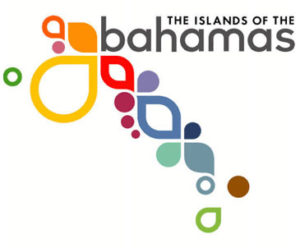By Tracey Manailescu, Co-founder of The Wedding Planners Institute of Canada Inc.
Re-Evaluating Venue Vendor Lists: Empowering Wedding Planners and Couples
Wedding planners serve as the essential gatekeepers for couples, guiding them through every detail of their special day. However, the current practice of restrictive venue-approved vendor lists is a growing concern within the industry. While these lists aim to ensure quality and reliability, they often limit access to some of the best wedding professionals. It’s time for venues to rethink their approach and recognize the vital role that wedding planners play. Here’s why change is necessary and how we can move forward.
The Issue with Approved Vendor Lists
Approved vendor lists are typically curated by venues to streamline the planning process and maintain a certain standard of service. However, this practice has several downsides:
- Limited Choices for Couples: Couples are often restricted to a select group of vendors, which may not align with their vision or budget.
- Missed Opportunities for Talented Pros: Many skilled wedding professionals are excluded from these lists simply because they haven’t had the chance to work at the venue or cannot afford to pay for a spot on the list.
- Potential for Bias: Vendor lists can sometimes be influenced by relationships or financial incentives rather than the quality of service.
Why Wedding Planners Should Have More Influence
Wedding planners are the key contact of the wedding planning process. Their role is critical for several reasons:
- Holistic Understanding: Planners have a comprehensive view of the entire wedding, ensuring all elements work together seamlessly. They understand the couple’s vision in a way that a venue coordinator may not.
- Personalized Recommendations: Planners suggest vendors who match the couple’s style, personality, and budget, leading to a more customized and satisfying experience. Their recommendations are based on personal experience and client needs, not just venue familiarity.
- Quality Assurance: Professional planners vet their recommended vendors rigorously, ensuring high standards of service and reliability. They have firsthand knowledge of the vendors’ work ethics, capabilities, and reliability, which can be more telling than a spot on an approved list.
A New Approach: Flexible Vendor Policies
Venues can maintain their standards without restricting choices by adopting more flexible vendor policies. Here are some suggestions:
- Open Vendor Lists: Instead of a fixed list, venues can provide guidelines and allow couples to choose any vendor who meets these criteria. This ensures quality without limiting options.
- Trial Periods: Allow new vendors to work at the venue on a trial basis. This way, venues can assess their performance before adding them to a preferred list.
- Collaborative Selection: Work with wedding planners to identify and vet potential vendors. This collaborative approach ensures that only the best professionals are recommended.
The Wedding Planner’s Role in Educating Couples
Educating couples about their options and empowering them to make informed decisions is crucial. Wedding planners can play a significant role here:
- Transparent Communication: Clearly explain the pros and cons of working with venue-approved vendors versus other qualified professionals.
- Highlight Success Stories: Share examples of successful weddings that featured non-approved vendors to demonstrate the potential for excellence.
- Advocate for Flexibility: Encourage venues to be open to new vendors by showcasing the benefits of a more inclusive approach.
Emphasizing the Planner’s Expertise
Wedding planners bring unmatched expertise and personal touch to the table. Their value includes:
- Tailored Experience: Planners tailor their services to each couple’s unique needs and preferences, ensuring a wedding that truly reflects the couple’s vision.
- Problem Solving: With their extensive experience, planners are adept at anticipating and solving problems before they arise, ensuring a smooth planning process and event.
- Vendor Relationships: Planners have built strong relationships with a wide range of vendors, which can lead to better deals and more reliable service.
The wedding industry is evolving, and it’s time for venues to adapt. By re-evaluating their vendor policies and recognizing the pivotal role wedding planners play, venues can offer couples a more personalized and fulfilling experience. It’s not about lowering standards; it’s about embracing the wealth of talent within the industry and ensuring every couple has access to the best professionals to bring their dream wedding to life.
Wedding planners are the true architects of a couple’s wedding day, and their expertise should be respected and utilized to its fullest potential. By collaborating with planners and adopting more flexible vendor policies, venues can enhance the overall wedding experience for everyone involved.

As the Co-founder and Vice President of The Wedding Planners Institute of Canada (WPIC) and the President of The Wedding Planners Institute of Coordination, Tracey’s expertise extends across North America, the Caribbean, and Europe.
Beyond planning weddings, she is passionate about teaching WPIC courses, organizing alumni events, and speaking at industry conferences to inspire and uplift the next generation of event professionals.









Leave a Reply